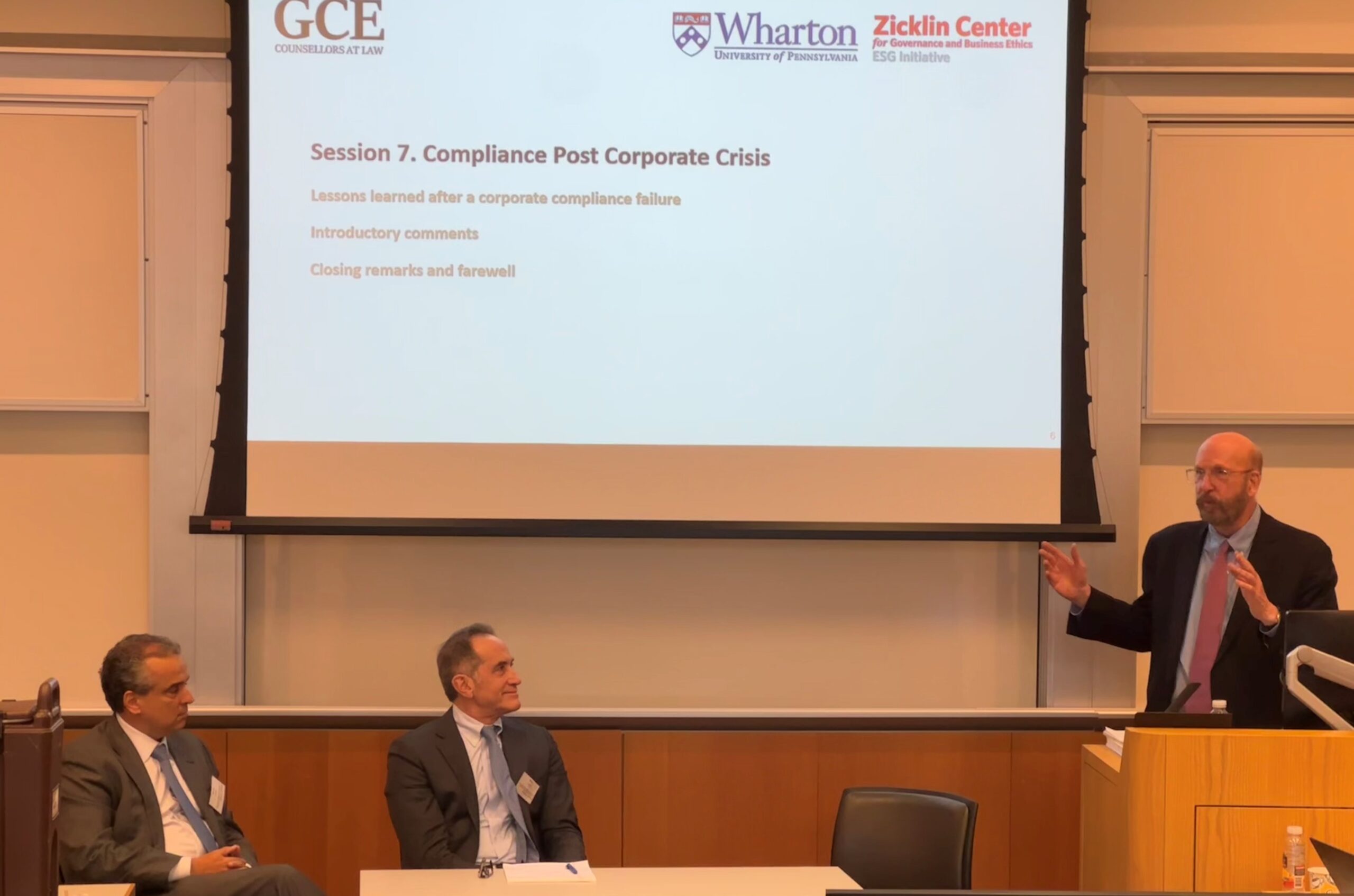Corporate Compliance and Monitorships: Neil Getnick Presents at Wharton Conference
On December 2, 2023, Getnick Law Managing Partner Neil Getnick spoke as a panelist on corporate compliance and monitorships during a conference held at The Wharton School of the University of Pennsylvania. He traced the history of both corporate compliance and monitorships, starting with the passage of the 1991 Federal Sentencing Guidelines for Organizations and the parallel rise of the Independent Private Sector Inspector General (IPSIG) concept and implementation in New York City. He spoke about the use of IPSIGs in New York City’s anti-organized crime campaign, which targeted various industries that organized crime had infiltrated, such as the construction, waste, and carting industries. He pointed out the duality of the federal Racketeer Influenced and Corrupt Organizations Act (RICO)’s enterprise theory. That duality is the distinction between racketeer influenced versus corrupt organizations. A racketeer influenced organization is a legitimate business, in which corruption has infiltrated. A corrupt organization, such as the mob, has no legitimate purpose. Consider the following scenario: a carting company wants to collect waste in downtown Manhattan and is told by a mobster that the company must pay the mob a kickback or it will destroy the company’s equipment. The carting company complies. The carting company is a racketeer influenced organization, whereas the mob is a corrupt organization. When it comes to corporate compliance and monitorships, reforming corrupt organizations remains highly difficult, whereas assisting racketeer influenced companies overcome criminal impositions has far greater potential.
In discussing effective monitorship practices, Getnick emphasized the distinction between what he termed “law-driven compliance” and “business-driven integrity.” Law-driven compliance programs are often “check-the-box” to dos that are grudgingly tolerated by executives and employees. In contrast, business-driven integrity programs are viewed throughout the company as a profit center and a competitive advantage, rather than a cost center or an obstacle. As a result, business-driven integrity programs create cultural change and meaningful reform. When it comes to monitoring corporate entities, Getnick highlighted that the most successful approach employs a model using multi-disciplinary skill sets: legal; investigative; forensic auditing; and industry expertise. As an example, Getnick spoke of the post 9/11 World Trade Center disaster clean-up, where Getnick Law served as an independent monitor. That project came in on time, on budget, and to specification, a highly unusual result following a natural or manmade disaster. A Congressional committee labeled the independent monitoring component of the disaster clean-up a “Best Practice.” Getnick then questioned the wisdom of the U.S. Department of Justice’s present practice of allowing monitored companies to play the lead role in selecting their monitors.
Finally, Getnick discussed the role that Getnick Law attorneys have played in developing independent monitoring standards. First, he noted that Getnick Law partner Margaret Finerty served on the American Bar Association’s Task Force on Corporate Monitors, which authored the Standards for Criminal Justice Monitors and Monitoring. The report presents “best practices for those providing oversight services to organizations, including external compliance efforts or Independent Private Sector Inspectors General (IPSIGs).” Second, he stated that Getnick Law partner Lesley Ann Skillen co-authored the foundational report on the IPSIG concept and the International Association of IPSIGs (IAIPSIG) Code of Ethics. Getnick recommended both the ABA Task Force’s Standards for Criminal Justice Monitors and Monitoring and IAIPSIG Code of Ethics as foundational texts for monitors.

